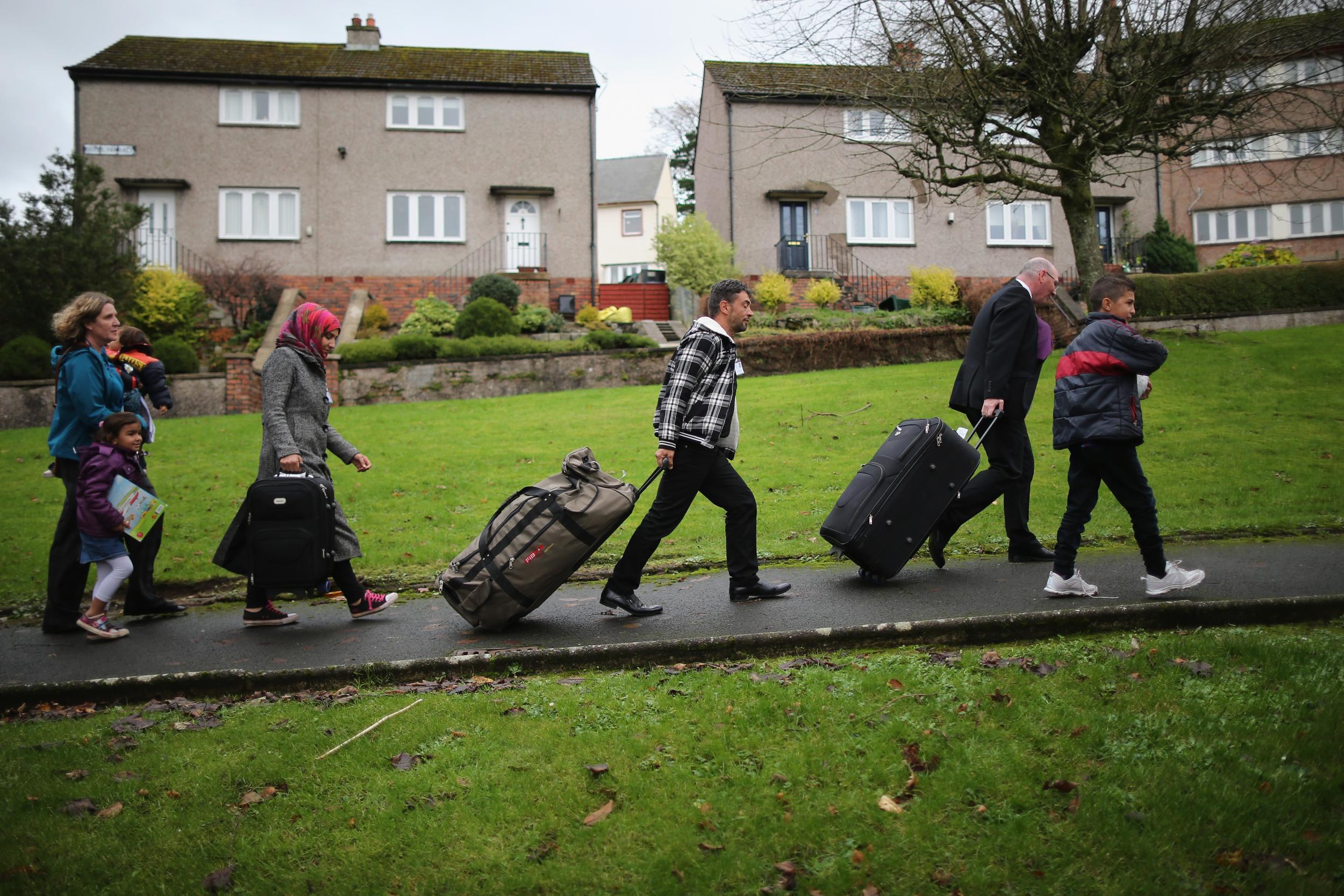Syrian interpreters need more government support as 'only available staff' to traumatised families
Interpreters report breaking into tears and suffering bouts of depression as result of work they do under Syrian Vulnerable Person Resettlement Programme

Your support helps us to tell the story
From reproductive rights to climate change to Big Tech, The Independent is on the ground when the story is developing. Whether it's investigating the financials of Elon Musk's pro-Trump PAC or producing our latest documentary, 'The A Word', which shines a light on the American women fighting for reproductive rights, we know how important it is to parse out the facts from the messaging.
At such a critical moment in US history, we need reporters on the ground. Your donation allows us to keep sending journalists to speak to both sides of the story.
The Independent is trusted by Americans across the entire political spectrum. And unlike many other quality news outlets, we choose not to lock Americans out of our reporting and analysis with paywalls. We believe quality journalism should be available to everyone, paid for by those who can afford it.
Your support makes all the difference.Interpreters for Syrian refugees should be given psychological support as a “priority” due to the stress the work causes, according to a study.
Researchers found that while arrangements under the Syrian Vulnerable Person Resettlement Programme (SVPRP) had exceeded the expectations of refugees, there were concerns about support given to interpreters.
The study, which looked at how the scheme was rolled out in Edinburgh as a way to provide guidance for other authorities, highlights how the workers were often the “only available staff” to families, which saw them build close relationships.
Interpreters reported breaking into tears during meetings and suffering bouts of depression as a result of what they were dealing with, often providing help out of hours.
SVPRP is a programme which commits the UK Government to resettling 20,000 Syrian refugees. It was announced by the Government following a public outcry over the fate of those attempting the perilous journey across the Mediterranean.
More than 8,000 refugees have so far arrived in the UK under the scheme, which has had a “truly transformative” impact on people’s lives, according to a recent report from United Nations High Commissioner for Refugees (UNHCR).
Refugees have said they are grateful for the “genuine welcome” they have received in the UK, and are heartened that their children have been able to attend school and catch up on lost education, the report said.
But the latest study, published by Oxford University Press on behalf of Faculty of Public Health, indicates that not enough support id put in place for the interpreters required to support the families.
One of the interpreters said in the study: “I just feel down and depressed because every day you are hearing what they’ve been through and it brings back memories to me, because we’ve been through this as well in my country – I was crying with them.”
Another added: “I’ve done quite a lot of work with the police, hospitals and courts, but the fact that you establish a relationship with the families, things affect you.”
NHS Lothian consultant Dermot Gorman, co-author of study, said: “It’s always variable with each worker, each one has a different approach, but some would be going out on a Saturday evening to put in papers for appointments.
“It could be stressful for interpreters. They were hearing stories that perhaps had resonance with their own lives.”
Dr Gorman said the programme has been largely successful and was confident the country could take in more of those in need.
Problems identified include language problems for the new arrivals and difficulties with navigating NHS services, which led to them using interpreters as a first point-of-call for assistance.
The study focused on Edinburgh as it was one of the first in Scotland to take in large numbers through the resettlement scheme. It was announced last week that Scotland had taken in its target of 2,000 refugees three years ahead of schedule.
Th researchers reviewed the successes and downfalls of the programme through the experience and opinions of interpreters during 2015 and 2016, and have called on a number of recommendations to be implemented. In its conclusion it said psychological support for them should be “prioritised”.
Counselling is available for staff, but the paper said its availability should be reinforced in training for interpreters. It adds that management should consider the workers’ own histories when giving them jobs.
The findings, have been fed back to City of Edinburgh Council and NHS Lothian.
Professor Alison McCallum, NHS Lothian’s director of public health and public policy, said: “We are committed to ensuring all our staff, especially those who experience stressful situations through their work, have access to a range of occupational health support services to help them deal with stress and trauma.
“These services are made available to all our staff, including our interpreters, so that they are able to seek help when they need it.”
A City of Edinburgh Council spokeswoman said: “We encourage all staff who encounter stress in their role to come forward and access the various support networks we have in place.
“We are aware of the report and will be considering whether it has any further implications for the support we give our interpreters.”
Subscribe to Independent Premium to bookmark this article
Want to bookmark your favourite articles and stories to read or reference later? Start your Independent Premium subscription today.
Join our commenting forum
Join thought-provoking conversations, follow other Independent readers and see their replies
Comments